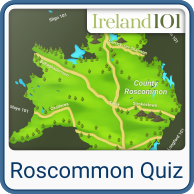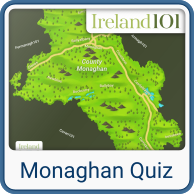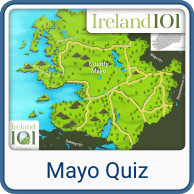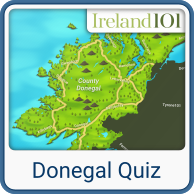99,674 Duffy Members around the world.
See one of our recent Ireland101 Tribe Gatherings
Duffy Family History
Ó Dubhthaigh- anglicised Duffy, O'Duffy, Duhig, Doohig,earlier O Duhie &c. The root word is 'dubh' or 'black'. According to Woulfe ('Sloinnte Gaedheal is Gall', 1923) et al, Duffy is the form generally used in Ireland (add those who resumed the ''O' in modern times),and Duhig the form often used in Munster.
This surname is doubtless that of several separate families across Ireland, which means that there exists an etymological relationship between the various families, but not necessarily a familial one. The (O) Duffys of Co Monaghan, being the most numerous modern surname of that county, need to be singled out, as do the (O) Duffys of Connacht who have played an important part in the church in that province over the years. Specifically Co Roscommon in Connacht is associated with the Duffys, as is Co Donegal in Ulster.
The 1659 'Census' of Sir William Petty, the English Commonwealth's surveyor in Ireland, is a rather incomplete but nonetheless useful record of Irish families in Ireland during the mid 17th century, immediately after the Cromwellian Invasion. The records for Co Monaghan are particularly disappointing vis-a-vis several prominent Monaghan names, and this is the case with (O) Duffy: there is no entry for this name.
However, as regards Roscommon, the following are found (listed as 'Principal Irish Name'): Duffe, 6 families, Ballintobber Barony; Duffe, 16 families, Athlone Barony. Both Co Mayo and Co Galway are annoyingly missing from the 'Census'. However, 5 families of O Duhy are recorded in Leynie Barony, Co Sligo.
In Ulster in Co Donegal, Kilmacrenan Barony, there are 6 families of O Dowy; Inisowen Barony, 6 families of O Doy.
In Leinster in Co Louth, there are 4 families of Duffie in Dundalk Barony; 10 families of Duffie, Atherdee Barony. In Co Meath, Duleek Barony, 8 families of Duffe; Scrine Barony, 7 families of Duff. Duff is also a Scottish name of similar derivation, although here it would be simply a variant spelling of Duffy.
By the time of Griffith's 'Primary Valuation' of households in the mid 19th century, most Duffy households occur in the counties of Monaghan (621), Mayo (375), Donegal (269), Louth (174), Meath (154), Westmeath (129) and Roscommon (124).
In the Registrar General's 'Special Report...' (1894), based on the births distribution of 1890, most Duffys appear in counties Mayo, Monaghan, Donegal, Dublin, Louth and Roscommon. The totals are: 282 Duffy + 23 (variant spellings). Apropos of the 1890 figures, Duffy is in the top 50 surnames in Ireland. There were only 7 births of Duhig variant in 1890, 5 in Cork and 2 in Kerry.
Two famous Duffys:
Sir Charles Gavan Duffy (1816-1903) born in Monaghan town, was extraordinarily both a nationalist poet, who was convicted of 'sedition', and knight of the British Empire (knighted in 1873 and made KCMG in 1877). The latter 'honours' stemmed from his status as an Australian politician: he was the 8th Premier of Victoria. His career in his adopted country was groundbreaking in terms of his Catholic background.
Eoin O'Duffy (1892-1941) born in Co Monaghan, was Commandant of the Monaghan Brigade of the IRA in the War of Independence (1920-1921). He was elected as Sinn Féin T.D. for his home county in the elections of 1921. He accepted the Treaty with Britain, signed by Collins and the Irish Delegation on 6th December, 1921; he subsequently fought as a General in the Free State Army during the Civil War that followed the acrimonious split in the IRA. He was made the first Commisioner of the Garda Síochána (Irish police) in 1922. He later became notorious for leading the 1930s fascist type Army Comrades Association or 'Blueshirts', which had a devout Catholic, anti-Communist stance, and taking a group of volunteers over to Spain to fight on the Francoist nationalist side in the Spanish Civil War. The Blueshirts were not very successful in Spain, although this did not deter O'Duffy from approaching Hitler with an offer of forming an Irish Brigade for the Operation Babarossa (Nazi Invasion of Soviet Union in 1941).
The Duffy Gallery
You must be logged in to add to the gallery.
Missing Duffy Ancestors
Results from our ancestor database.
| Name | Birthplace | Born | Died |
|---|---|---|---|
| James Duffy | Longford, Ireland | 29/6/1834 | - |





